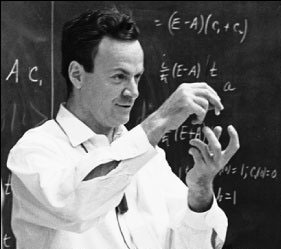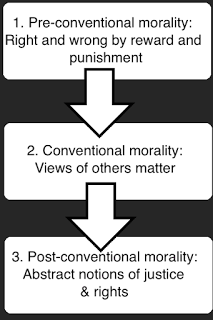Neuroscience
At the heart of everything we do, we hope there's a message. We hope there's a meaning behind what we learn and the work we create. When we learn and contribute to society, we always hope that what we do not only makes the lives of other people better, but adds value or meaning to our own selves. At the end of the day, what are we if we're not making ourselves better people?
In my journey of exploring philosophy and ethical issues that people face, many people I've met have recommended for students to take courses in ethics in order to learn how to become more ethical people. I disagreed. Though we can learn a lot from ethics courses, people with greater knowledge of ethics aren't necessarily more ethical people themselves. Ethics courses might teach you about ethical frameworks and philosophies upon which we establish systems of justice, law and similar things, but they aren't going to tell you that you should give money to a charity or call your mother every once in a while. Philosophers of ethics are mostly busy debating the meaning of morality and the foundation for our ethical knowledge rather than telling the general public they should stop eating meat because it's morally wrong. And the idea of an ethics course making students more "ethical" seems downright silly.
If knowing more about ethics doesn't make us better people, what does? Well, in the most philosophical sense, we tell ourselves that "ethics" makes people better. But, from our empirical observations, there's got to be something than just learning ethics that makes us better human beings.
Can we take a truly empirical approach to understanding what makes us moral? What if we could measure our understanding of ethics the same way we measure our behavior, health or information? If we follow the advice of my colleagues and institute more ethics courses that we require students to take (whether it's bioethics, public health ethics, business ethics, or any similar course), then we often run into the Heinz dilemma, an ethics dilemma in which a person's response dictates his/her stage of "moral development," according to the the Kohlberg model, of psychologist Lawrence Kohlberg.
And it fails.
The "levels" or "stages" of moral development of Kohlberg's model fails to understand how we truly make ethical decisions. As University of Virginia psychologist Jonathan Haidt writes, the way we reason for motivations is more like "a lawyer defending a client than a judge or scientist seeking truth." It posits that we can reason "better" and develop better "ethical skills," and, even if we could do such things, what makes us so sure that our definitions and ideas of "justice" are completely "objective" to which we can gauge our own ethical behavior? In the same paper, Haidt continues that moral action is more closely related with "moral emotion," rather than our own moral reasoning. The Heinz dilemma demonstrates how we easily take ethics for granted on the surface. We like to think that some of us are just "good" and others are "bad," and there's a scale on which we can easily put everyone.
Then what good are courses in ethics, if not for teaching us how to live ethically? In a world driven by employability and how much of an effect you will have on the world, ethics courses sell themselves by promising solutions to the questions of tomorrow. They promise professional development through skills in communication, reasoning, analysis and other areas. But, if we aren't seeing more ethical behavior with more courses in ethics, then we need something different. Something deeper.
As physicist Richard Feynman said, philosophers are always on the outside making stupid remarks. During his stay at an ethics conference, he pointed out how academics would use big words to try to appear smart. Though Feynman became ridiculously tired of philosophy entirely, he had a point. Apart from any tendency we have to cling onto phrases and words that sound good at the expense of actual understanding, we forget about what actually has qualities of truth, justified, provable, and other qualities. The philosophers might make stupid remarks on the surface (which is a huge problem), but, deep down, there's something bigger that we've taken for granted. We've accepted the surface without the depth. And maybe Feynman's remark helps us understand the problems in the way we teach ethics.
We can't take our ethics courses for granted as ways of making us more ethical people. If being an ethical person were as simple as taking a course in ethics, then all of problems would be solved by now. We need to dig deeper and think about the reasoning and motives behind what we do. We need to think about the epistemic issues in the way we think. We can be more ethical people by changing our understanding of any form of education, be it English, Science, History, or anything else, rather than anything an "ethics course" might teach us.
Feynman understood this well, and he's not even an ethicist.
- Neuroyoutube
The blog Brain Ethics posted a blog entry last month with links to several YouTube videos of historical figures in neuroscience and psychology: Read Brain Ethics post here...
- Upcoming Event: Univ. Of Minnesota, 08 February 2008
2008 Center for Bioethics Seminar Series “Ethics and Public Health Emergencies: How Should We Prepare for Pandemic Flu?” Friday, February 8, 2008 12:15–1:30 pm, 3-100 Mayo, University of Minnesota Campus Presented by Debra DeBruin, PhD Director...
- Complacency In The Medical-industrial Complex
Science is no longer a game of lab mice and test tubes. Long gone are the days of scientists only locked up in labs, secluded from everything but their microscopes and calculators. Now, more than ever, scientists find themselves writing reports and...
- What Pre-medical Students Can Learn From The Humanities
As I finish writing my final lab report for my Intermediate Physics Lab, the fall semester of my sophomore year comes to a slow, much-needed end. I've taken some time to reflect on the impact my classes have had since the beginning of the year. This...
- Promoting The Discussion Of Ethics
The time is 6:30 am. I'm outside my residence hall, having completed my morning run. I look around me and see faces and lights begin to appear. People in cars and buses slowly move into the empty streets. The chirps of birds...
Neuroscience
Why learning about ethics doesn't make you more ethical
 |
| Philosophers "are always on the outside making stupid remarks." - Richard Feynman |
In my journey of exploring philosophy and ethical issues that people face, many people I've met have recommended for students to take courses in ethics in order to learn how to become more ethical people. I disagreed. Though we can learn a lot from ethics courses, people with greater knowledge of ethics aren't necessarily more ethical people themselves. Ethics courses might teach you about ethical frameworks and philosophies upon which we establish systems of justice, law and similar things, but they aren't going to tell you that you should give money to a charity or call your mother every once in a while. Philosophers of ethics are mostly busy debating the meaning of morality and the foundation for our ethical knowledge rather than telling the general public they should stop eating meat because it's morally wrong. And the idea of an ethics course making students more "ethical" seems downright silly.
If knowing more about ethics doesn't make us better people, what does? Well, in the most philosophical sense, we tell ourselves that "ethics" makes people better. But, from our empirical observations, there's got to be something than just learning ethics that makes us better human beings.
Can we take a truly empirical approach to understanding what makes us moral? What if we could measure our understanding of ethics the same way we measure our behavior, health or information? If we follow the advice of my colleagues and institute more ethics courses that we require students to take (whether it's bioethics, public health ethics, business ethics, or any similar course), then we often run into the Heinz dilemma, an ethics dilemma in which a person's response dictates his/her stage of "moral development," according to the the Kohlberg model, of psychologist Lawrence Kohlberg.
And it fails.
 |
| If anything, the Kohlberg model is empirical evidence that social scientists suck at philosophy. |
Then what good are courses in ethics, if not for teaching us how to live ethically? In a world driven by employability and how much of an effect you will have on the world, ethics courses sell themselves by promising solutions to the questions of tomorrow. They promise professional development through skills in communication, reasoning, analysis and other areas. But, if we aren't seeing more ethical behavior with more courses in ethics, then we need something different. Something deeper.
As physicist Richard Feynman said, philosophers are always on the outside making stupid remarks. During his stay at an ethics conference, he pointed out how academics would use big words to try to appear smart. Though Feynman became ridiculously tired of philosophy entirely, he had a point. Apart from any tendency we have to cling onto phrases and words that sound good at the expense of actual understanding, we forget about what actually has qualities of truth, justified, provable, and other qualities. The philosophers might make stupid remarks on the surface (which is a huge problem), but, deep down, there's something bigger that we've taken for granted. We've accepted the surface without the depth. And maybe Feynman's remark helps us understand the problems in the way we teach ethics.
We can't take our ethics courses for granted as ways of making us more ethical people. If being an ethical person were as simple as taking a course in ethics, then all of problems would be solved by now. We need to dig deeper and think about the reasoning and motives behind what we do. We need to think about the epistemic issues in the way we think. We can be more ethical people by changing our understanding of any form of education, be it English, Science, History, or anything else, rather than anything an "ethics course" might teach us.
Feynman understood this well, and he's not even an ethicist.
- Neuroyoutube
The blog Brain Ethics posted a blog entry last month with links to several YouTube videos of historical figures in neuroscience and psychology: Read Brain Ethics post here...
- Upcoming Event: Univ. Of Minnesota, 08 February 2008
2008 Center for Bioethics Seminar Series “Ethics and Public Health Emergencies: How Should We Prepare for Pandemic Flu?” Friday, February 8, 2008 12:15–1:30 pm, 3-100 Mayo, University of Minnesota Campus Presented by Debra DeBruin, PhD Director...
- Complacency In The Medical-industrial Complex
Science is no longer a game of lab mice and test tubes. Long gone are the days of scientists only locked up in labs, secluded from everything but their microscopes and calculators. Now, more than ever, scientists find themselves writing reports and...
- What Pre-medical Students Can Learn From The Humanities
As I finish writing my final lab report for my Intermediate Physics Lab, the fall semester of my sophomore year comes to a slow, much-needed end. I've taken some time to reflect on the impact my classes have had since the beginning of the year. This...
- Promoting The Discussion Of Ethics
The time is 6:30 am. I'm outside my residence hall, having completed my morning run. I look around me and see faces and lights begin to appear. People in cars and buses slowly move into the empty streets. The chirps of birds...
